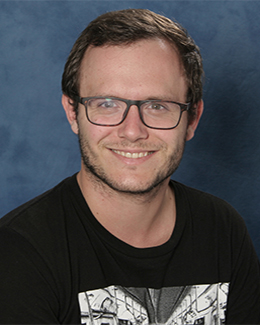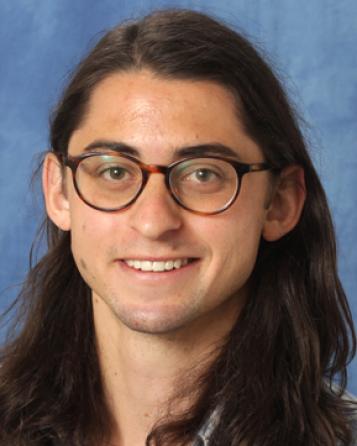2020 Galileo Circle Scholarships
Congratulations to LPL's 2020 Galileo Circle Scholarship recipients: Saverio Cambioni, Xiaohang Chen, Indujaa Ganesh, Weipeng Ben Lew, Patrick O'Brien, Maria Steinrück, Sarah Sutton, and Joana Voigt.
Galileo Circle Scholarships are awarded to the University of Arizona's finest science students and represent the tremendous breadth of research interests in the University of Arizona College of Science. Galileo Circle Scholarships are supported through the generous donations of Galileo Circle members. Galileo Circle Scholars receive $1,000 each and the opportunity to introduce themselves and their research to the Galileo Circle patrons.
|
|
Saverio Cambioni
(Advisor: Erik Asphaug)
My vision is that Artificial Intelligence (AI)—the ability for a computer program to learn and think—could allow for overcoming the limitations that humans bring to data analysis. AI can review large volumes of data and discover specific trends and patterns that would not be apparent to humans. This makes AI a natural tool to look at missing links, such as those connecting to the formation of planetary systems and the origin of life on Earth, or to signals of advanced civilizations elsewhere. |
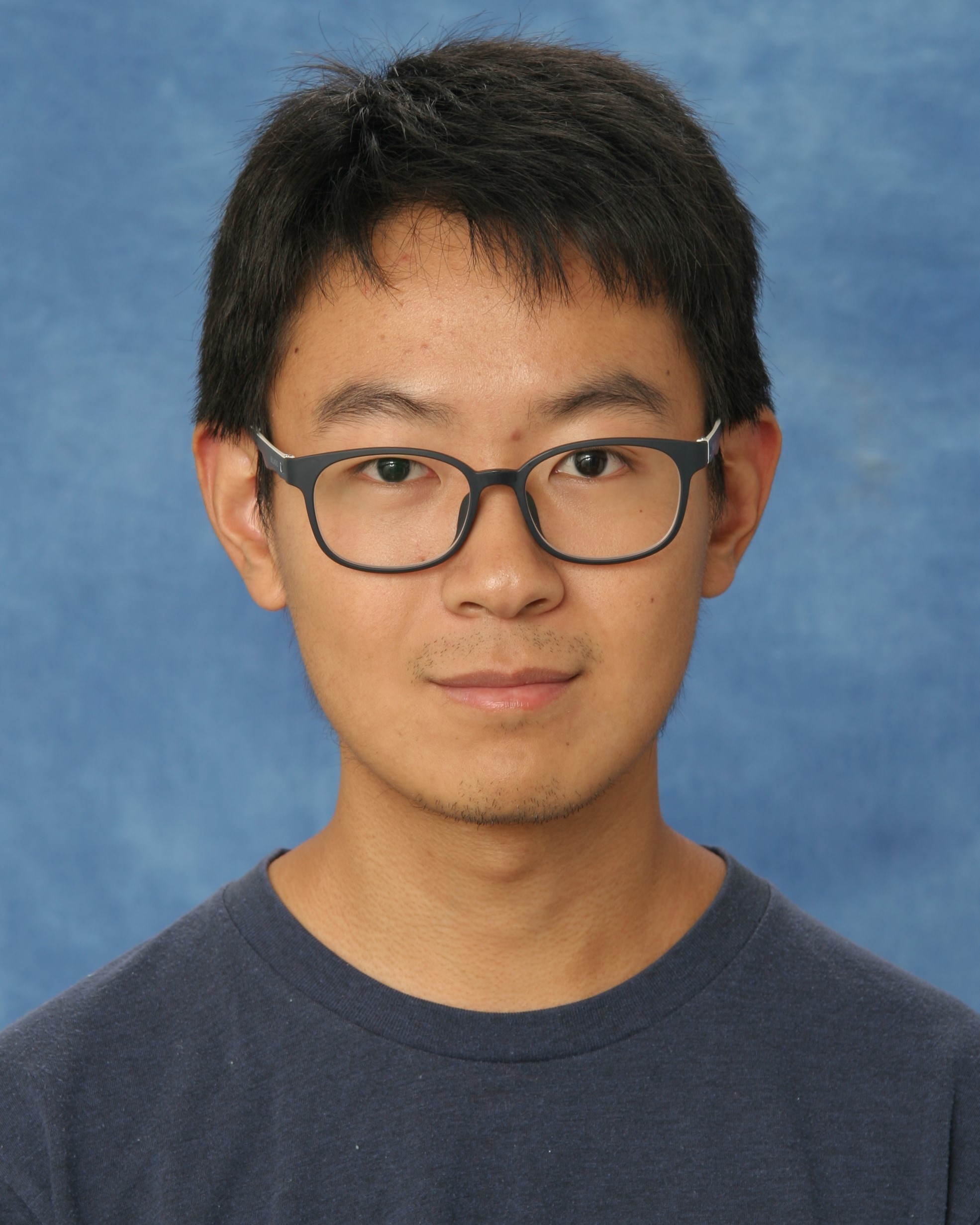 |
Xiaohang Chen
(Advisor: Joe Giacalone)
I study the physics of explosive phenomena such as coronal mass ejections and solar flares, and how they affect Earth. These phenomena convert solar magnetic field energy into kinetic and thermal energy. The charged particles in the solar corona can be accelerated to relativistic particles (solar energetic particle events). SEPs can cause radiation hazards and disrupt communication and transportation systems. My goal is to reveal the origin, acceleration and transport mechanisms of these energetic particles by developing a model of particle acceleration at a non-spherical shock. (Xiaohang's award was announced after publication of the print edition for Spring 2020.) |
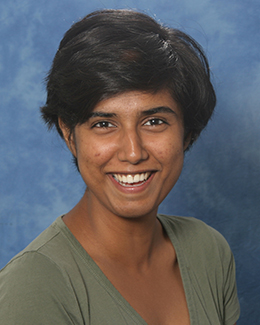 |
Indujaa Ganesh
(Advisor: Lynn Carter)
My research concerns volcanism on Earth and other planets. I study the physical processes that drive volcanic eruptions and use numerical techniques to model these processes. I also use radar data to complement and constrain my modeling work. I enjoy implementing mathematical models to carry out quantitative geological investigations. I’m a firm proponent of using radar instruments for planetary exploration and I’m keen on expanding my expertise in different radar techniques like ground penetrating radars, imaging synthetic aperture radars, and radar polarimetric imaging. |
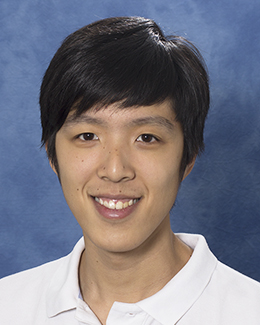 |
Weipeng Ben Lew
(Advisor: Daniel Apai)
Clouds affect how much energy is being absorbed and reflected in an atmosphere. By regulating the heating and cooling rate of an atmosphere, clouds play a key role in shaping the weather and climate of a planet. Observations of planets beyond the Solar System, which are called exoplanets, suggest that clouds are prevalent in planetary atmospheres. My long-term research goal is to understand the chemical and physical processes in cloud formation, and to answer the question “How do clouds impact the evolution of planetary atmospheres?” |
|
|
Patrick O'Brien
(Advisor: Shane Byrne) So far in my scientific career I have developed skills and experiences in multiple fields of research on scales ranging from nanometer-sized particles to massive stars the size of Earth. This journey has instilled in me an invaluable perspective on a complex, interconnected Universe and led me to a career in planetary science, a field interdisciplinary by its very nature. My ultimate goal is to work on challenging problems using tools and technologies from many different fields and to connect people to the excitement of space exploration and solar system science.
|
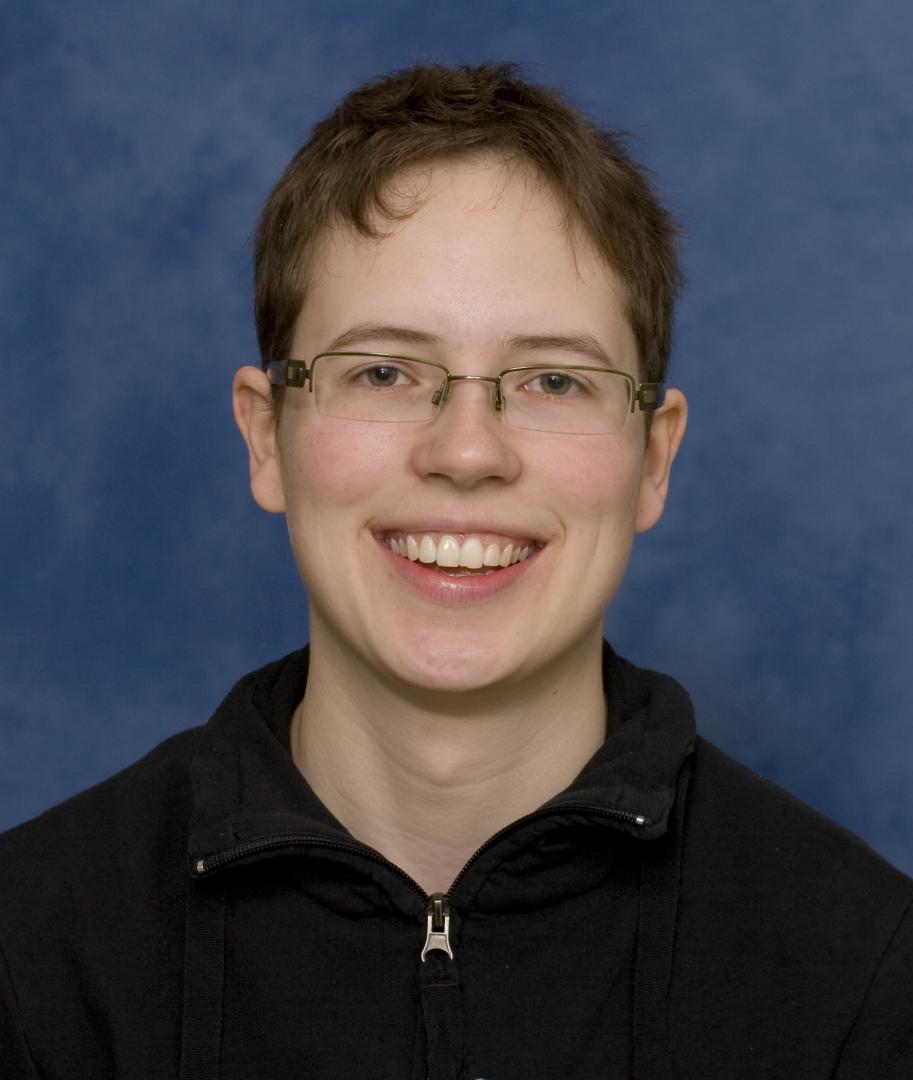 |
Maria Steinrück
(Advisor: Adam Showman/Tommi Koskinen)
My research focuses on hot Jupiters. Hazes obscure the spectral signatures of gases present in the atmospheres of many hot Jupiters, making it hard to determine what the atmosphere is made of. I investigate if these hazes are formed through photochemical processes. Previous research has used 1D models that cannot fully capture the effects of the strong winds on hot Jupiters. My goal is therefore to adapt the 3D Global Climate Model that my research group uses to include photochemical hazes. |
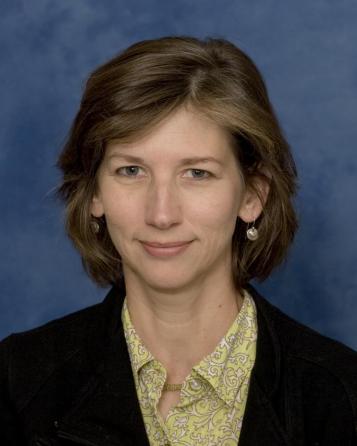 |
Sarah Sutton
(Advisor: Christopher Hamilton)
My dissertation focuses on fissure-fed eruptions on Mars and Earth, analyzing morphology using high resolution topography from optical imaging and laser scanning data. My research connects the evolution of volcanic features on Earth to those on Mars and other planets to further our ability to interpret their morphology and more accurately model the fundamental physical processes that led to their creation.
|
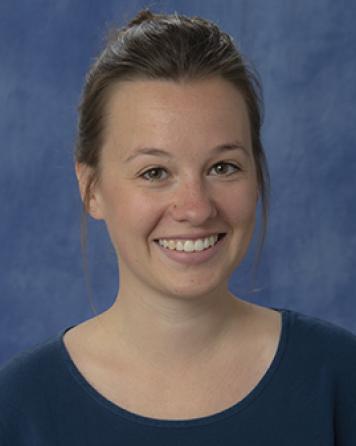 |
Joana Voigt
(Advisor: Christopher Hamilton)
The surface of a planet is an expression of the interior dynamics of the body. I am interested in establishing fundamental links between both to learn more about the inner working principles and evolution of planets. Linking the volcanic deposits to the controlling mechanisms is the research topic that I am inspired by and thus my Ph.D. is dedicated to better understanding these relationships. It is fundamental to combine terrestrial with planetary volcanism, so I study eruption products of the 2014–2015 Holuhraun lava flow-field in Iceland and the Elysium volcanic province on Mars. |


